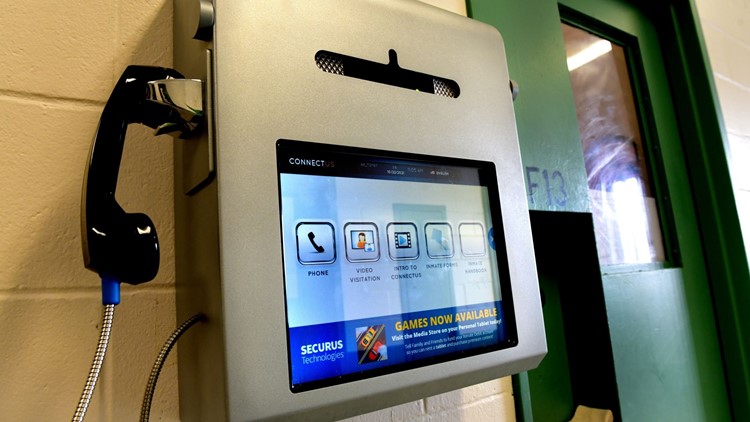MAINE, USA — A legislative study group is on the verge of recommending that Maine create a centralized website to collect the phone numbers of defense attorneys in order to prevent jails from recording private calls with clients who are behind bars.
The statewide repository for phone numbers would replace the patchwork of processes currently in place at Maine’s jails and prisons.
Defense attorneys currently must provide their phone number to each jail where they want to conduct private calls — that are not recorded or monitored — with a client. There is no uniform process to provide a phone number to all of Maine’s 15 county jails and the state Department of Corrections.
“I feel that we’ve come a long way where we’ve got members of the committee agreeing there should be more uniformity,” said Sen. Anne Carney, D-Cape Elizabeth and a co-chair of the study group.
In a series of unofficial votes by the Committee to Ensure Constitutionally Adequate Contact with Counsel on Wednesday, members unanimously agreed prosecutors, law enforcement and defense attorneys needed clearer processes and policies for handling recordings of inmates’ phone calls.
State law enforcement agencies and correctional facilities would be required to adopt policies about protecting confidential communications between attorneys and clients, members agreed. Under the proposal discussed Wednesday, they would also be expected to have a policy about how to handle when confidentiality is breached.
The steps toward the recommendation — which still face legislative consideration — comes after more than two years of reporting by The Maine Monitor.
Nearly 1,000 attorney-client phone calls were recorded by six Maine jails in a year, an investigation by The Maine Monitor found. Recordings of dozens of those phone calls were later shared with police or prosecutors, who heard parts of the conversations.
The U.S. Supreme Court has long recognized a defendant’s right to confidential communications with his or her lawyer, known as attorney-client privilege.
Defense lawyers have had varied success dismissing cases after they’ve shown their privileged calls were recorded and listened to. A judge refused to dismiss a murder indictment after lawyers showed a Maine State Police detective listened to parts of three calls with their jailed client. Kennebec County prosecutors dismissed a felony indictment in September after a defense attorney filed documents in court alleging a state investigator “monitored” calls between his client and another lawyer.
The study group was undecided on Wednesday what the penalties should be for police and prosecutors who listen to these calls or defense lawyers who fail to register their phone numbers with the jails.
A report with the group’s final recommendations is due by Nov. 2 and members will vote to finalize their recommendations on Oct. 19. Lawmakers may consider their recommendations and potential legislation next year.
If the group’s recommendations are adopted, it would be a major overhaul to how Maine goes about protecting the confidential phone calls of incarcerated people.
Rob Ruffner, a Portland-based defense attorney, suggested a proposal that would go even further. He proposed that Maine jails and prisons not be allowed to monitor any phone calls except to ensure the safety and security of the facility. His rationale was that prosecutors cannot access phone records of people released on bail without a warrant.
“Instead of looking at when the facility or the state should not have access to it — or should not review it — we should be looking at very limited exceptions where the state or the facility is allowed to monitor these communications,” Ruffner said.
Law enforcement and prosecutors currently can listen to recordings of any phone call a person in jail makes to someone other than their lawyer. Under Ruffner’s proposal, police and prosecutors would need a court order and prove the value of the monitoring, similar to approval for a wiretap.
Guards would also not be allowed to share information gleaned from prisoners’ calls with prosecutors. This would include information about crimes outside the facility or harassment of victims, which immediately raised questions from prosecutors, domestic violence victim advocates and law enforcement on the study group.
Rep. Thom Harnett, D-Gardiner and the other co-chair of the group, said that they were unlikely to be able to fully consider Ruffner’s proposal before their Nov. 2 deadline for its report.
Courts have ruled that people in jail have a lesser right to privacy. But, constitutional rights shouldn’t be contingent on a person’s ability to pay bail, Harnett said.
“We’re really discriminating against people because of their socioeconomic status,” Harnett said.
This story was originally published by The Maine Monitor. The Maine Monitor is a local journalism product published by The Maine Center for Public Interest Reporting, a nonpartisan and nonprofit civic news organization.



